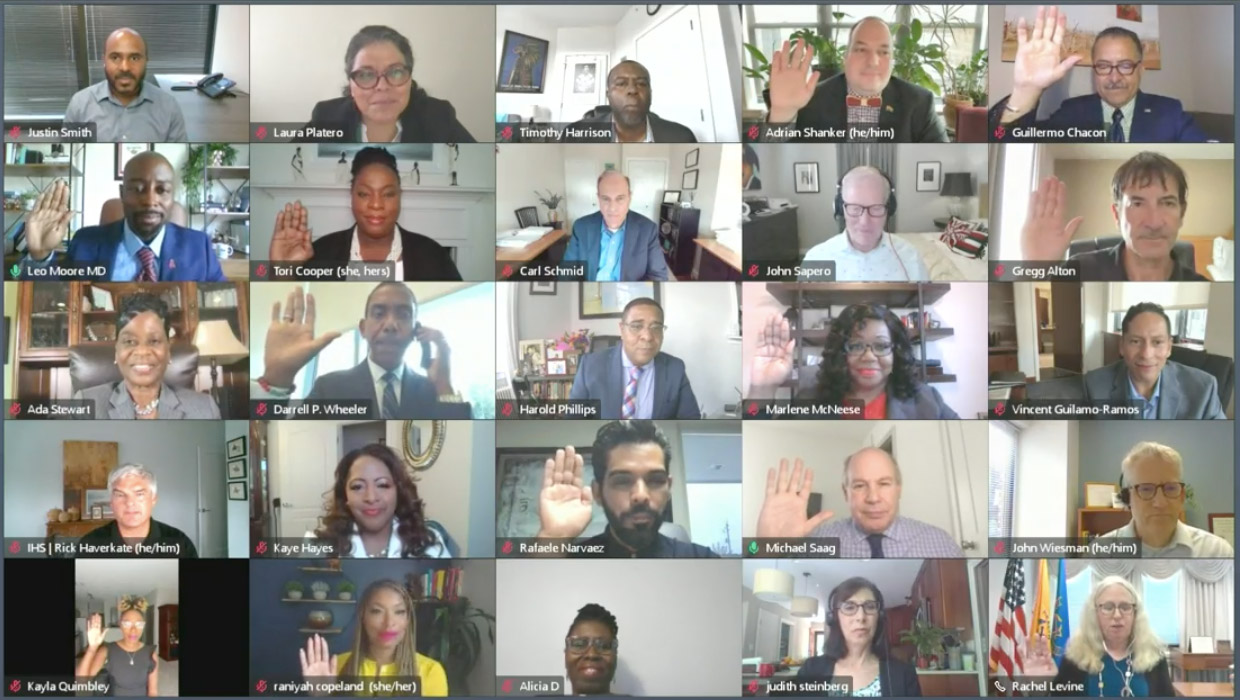8 New Members Join Presidential Advisory Council on HIV/AIDS
Topics

During today’s virtual meeting of the Presidential Advisory Council on HIV/AIDS (PACHA), Assistant Secretary for Health Dr. Rachel Levine swore in eight new Council members. The new members bring diverse expertise and valuable perspectives and hail from six states. The new members are:
- Marlene McNeese, Assistant Director, Houston Health Department
- Guillermo Chacón, President, Latino Commission on AIDS, and Founder, Hispanic Health Network
- Tori Cooper, MPH, Director of Community Engagement for the Transgender Justice Initiative, Human Rights Campaign
- Raniyah Copeland, MPH, President and CEO, Black AIDS Institute
- Leo Moore, MD, MSHPM, Medical Director for Clinic Services, Los Angeles County Department of Public Health
- Kayla Quimbley, National Youth HIV and AIDS Awareness Day Ambassador, Advocates for Youth
- Adrian Shanker, Founder and Executive Director, Bradbury-Sullivan LGBT Community Center
- Darrell P. Wheeler, PhD, MPH, MSW, Provost and Sr. Vice President for Academic Affairs, Iona College
In addition, Dr. Levine announced that one of the new members, Marlene McNeese, will assume the role of PACHA co-chair, alongside Dr. John Weisman. Carl Schmid will remain a member of PACHA.
Three current PACHA members whose terms expired were re-appointed for two-year terms:
- Gregg Alton, JD
- Rafaelé Narváez
- Michael Saag, MD
The PACHA provides advice, information, and recommendations to the Secretary of Health and Human Services regarding programs, policies, and research to promote effective prevention, treatment, and cure of HIV disease and AIDS. This includes recommendations to the Secretary regarding the development and implementation of the Ending the HIV Epidemic in the U.S. initiative and the HIV National Strategic Plan.
The Council may have up to 25 members, including the chair. Members and the chair are selected by the Secretary of Health and Human Services from authorities with particular expertise in, or knowledge of, matters concerning HIV and AIDS. Council members are invited to serve for overlapping terms of up to four years.
We are pleased to welcome these new members to PACHA and look forward to their contributions of expertise and ideas to the Council’s work. Their distinct experiences and perspectives help ensure that the Council’s work honors the racial, ethnic, sexual and gender minority, and geographic diversity of the HIV epidemic in the U.S. today. Like the current members, the new members share a commitment to making a difference in the response to HIV by sharing their knowledge, creativity, and time.
Read biographies of the new members on the PACHA Members and Staff page on HIV.gov, where you can also learn more about PACHA and access materials from their meetings.